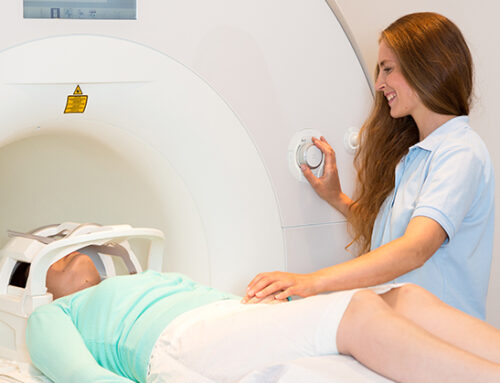Researchers made a surprising finding about another risk factor for Alzheimer’s. And the results of this brand-new research will have you tightening your helmet when you’re biking and doing what you can to avoid traumatic stress.
I’m talking about the new findings of a large-scale study that revealed a direct link between Alzheimer’s-related dementia, head injury and post-traumatic stress disorder. Here’s what you need to know…
In a study of Veterans led by Dr. Mark Logue, a statistician at the National Center for PTSD at the VA Boston Healthcare System, researchers found a clear correlation between post-traumatic stress disorder (PTSD), traumatic brain injury (TBI), and the ε4 variant of the APOE gene as it pertains to Alzheimer’s disease and related dementias.
This is the first time the medical community has researched the simultaneous impact of PTSD, TBI, and how they interact in cases of genetic risk factors in a large study population.
Researchers using a mathematical model found an increased risk of Alzheimer’s disease in those with PTSD and/or TBI in Veterans of European ancestry who inherited the ε4 variant. In Veterans with African ancestry, PTSD didn’t vary in those with ε4. However, the interaction between TBI and ε4 was even stronger. Previous studies have suggested that the ε4 variant may magnify the effects of a head injury and/or combat-related stress.
Dr. Logue and his colleagues wrote, “These additive interactions indicate that Alzheimer’s disease and related dementia prevalence associated with PTSD and TBI increased with the number of inherited APOE ε4 alleles. PTSD and TBI history will be an important part of interpreting the results of Alzheimer’s disease and related dementia genetic testing and doing accurate Alzheimer’s disease and related dementia risk assessment.”
Genetic Alzheimer’s Risk
APOE ε4 has been named an Alzheimer’s risk factor gene because it raises your risk of developing the disease. About 25 percent of the population carries one copy of APOE ε4, whereas two percent to three percent carry two copies.
However, inheriting the APOE ε4 gene does not guarantee you will get the disease, and lacking the APOE ε4 does not mean you will avoid it. Some people with the APOE ε4 never get the disease, and some who get the disease don’t carry any APOE ε4 alleles.
This study found a greater percentage of Alzheimer’s disease and related dementias in Veterans with PTSD and TBI, relative to those without those risks.
For 80-year-old Veterans of European ancestry without the ε4 variant, the percentage of Alzheimer’s disease and related dementias (ADRD) would be six percent higher for those with PTSD than for those without. Whereas for 80-year-old Veterans of European ancestry who inherited two ε4 copies, the risk of ADRD would be eleven percent higher for those with PTSD than those without.
Clear Link A “Surprise”
Dr. Logue expressed surprise over such clear evidence of a link between PTSD and head trauma on dementia risk.
He said, “… I was used to seeing a clear impact of APOE ε4 on Alzheimer’s risk. However, in this cohort, the effects of PTSD and head injury were just as clear and looked similar to the effect of inheriting ε4 from one of your parents.”
Right now, no genetic test can tell you if you’re certain to develop Alzheimer’s disease. Tests can only give an estimate of your likelihood of developing Alzheimer’s that may be higher or lower than normal.
In Veterans, a history of head injuries and PTSD can also make a large difference in dementia risk, so using that information will allow for more accurate measurement of the chances of developing dementia.
Capitalizing On The VA’s Million Veteran Program
The researchers in this study used data from VA’s Million Veteran Program (MVP) – one of the world’s largest databases of health and genetic information. MVP is focused on learning how genes, lifestyle, and military exposure affect health and illness, as more than 900,000 Veterans enrolled toward the goal of one million and beyond.
Today more than 40 percent of the Veteran population is above the age of 75. Therefore, the number of Veterans at risk for Alzheimer’s disease and related dementia is rising.
Previous studies have shown that PTSD and TBI increase dementia risk in Veterans. Dr. Logue and colleagues took it a step further by studying these risk factors combined with the APOE ε4 variant.
The number of ε4 variants is set at birth, but their expression changes with age. “The risk of Alzheimer’s disease increases with age for all of the APOE genotypes,” according to Dr. Logue, who is also an associate professor at Boston University and an Army Veteran.
“But when compared to people with two copies of the common variant, the difference in risk for those with a copy of ε4 appears to peak somewhere between age 65 and 70 and then decrease after that,” he said. “Again, that doesn’t mean that your chances of Alzheimer’s decrease after that, just that the difference between the risk for those with and without ε4 diminishes.”
Reducing Your Alzheimer’s Risk Factors
To reduce your risk of developing Alzheimer’s, prevent head injuries by wearing a helmet when biking or motorcycling. If you’ve already had a head injury or PTSD you can do your part to minimize your other risk factors for the disease. That includes eating a healthy diet, rich in fruit and vegetables, lean meats, and healthy fats such as coconut and avocado oils. It’s also important to exercise regularly, manage stress and get enough sleep.







